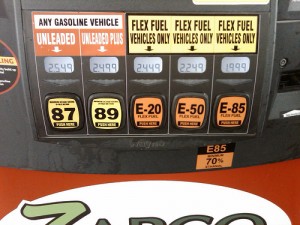 Iowa Senator Chuck Grassley along with a bipartisan group of senators, announced a proposed piece of legislation to promote the development of biofuel infrastructure. The Domestic Energy Promotion Act of 2011 would transition the current blender’s credit to a variable tax credit based on the price of oil, improve tax incentives for blender pumps and ethanol refueling infrastructure, and extend crucial tax incentives for advanced and cellulosic ethanol production that are set to expire at the end of the 2012.
Iowa Senator Chuck Grassley along with a bipartisan group of senators, announced a proposed piece of legislation to promote the development of biofuel infrastructure. The Domestic Energy Promotion Act of 2011 would transition the current blender’s credit to a variable tax credit based on the price of oil, improve tax incentives for blender pumps and ethanol refueling infrastructure, and extend crucial tax incentives for advanced and cellulosic ethanol production that are set to expire at the end of the 2012.
In response to the proposed ethanol legislation, Brooke Coleman, Executive Director of the Advanced Ethanol Council (AEC) said, “We applaud Senator Grassley’s continued leadership on this issue. The proposal strikes the right balance between providing savings to the taxpayer, developing the infrastructure necessary to incorporate growing volumes of ethanol from all feedstocks, and extending the incentives that are critical to the development of next generation ethanol fuels.”
“The tax incentives for advanced and cellulosic ethanol contained in Senator Grassley’s proposal will help our industry put steel in the ground and create jobs and economic activity that cannot be exported,” continued Coleman. “They are the type of tax incentives already provided for the fossil fuels industry, and extending these incentives helps begin the process of leveling an uneven playing field with gasoline and other petroleum fuels. Most importantly, this proposal establishes a durable and consistent tax framework for our industry, which in turn will facilitate substantial investment in domestically-produced advanced ethanol fuels and allow our sector to reach its full potential.”
To learn more about the Domestic Energy Promotion Act of 2011 and how it may impact the ethanol industry, listen to this week’s Ethanol Report.

